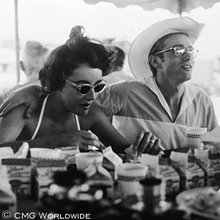
How sad I was to hear that 46 year old brilliant novelist/ essayist/ creative writing professor David Foster Wallace was found dead this Friday night. I actually really don't know what to say about this, about the tragedy. That's all I can say. It is tragic on many, many levels--spiritual, intellectual; public, private.
So I will just say a few words about my limited, underdeveloped, yet very appreciative relationship with Wallace's mind and writing. I cannot claim to be one of the many brave souls who made it through Wallace's gargantuan, spiraling novel Infinite Jest, but I will do it one day.

I can say that I have a great appreciation for Wallace's talent as a poignant, humorous, ever-relevant essayist. I especially appreciate his extended critique of the dangers of the continual, contemporary usage of irony that is found in the essay "E Unibus Pluram: Television and US Fiction" from A Supposedly Fun Thing I'll Never Do Again.
Here is a brief excerpt:
"Irony, entertaining as it is, serves an almost exclusively negative function. It’s critical and destructive, a ground-clearing…But irony’s singularly unuseful when it comes to constructing anything to replace the hypocrisies it debunks".

This very Coupland-esque critique of our overdependence on irony to not only critique, but construct a way of relating, perhaps even build something of a phantasmic "worldview" shanty, is why I chose Wallace as a voice within my dissertation. He was really onto something with these critiques--headed towards something real, vibrant, amazing. Something true. The New York Times Obituary calls Wallace a "Postmodern" author, and of course, this word has perhaps no meaning. But it seems clear to me that Wallace was dissatisfied with the constructed ironies of some of his fellow authors--it seems that he was looking for something beyond that. He did not label this possibility of a non-ironic reality, but his distrust of irony itself was decidedly (dare I say) moral. Is it more postmodern to be ironic, or is it more postmodern to question irony? As Wallace points out, irony has become an hegemonic institution itself--he sees its operation on a public level. Coupland sees its operation on a private level as a "protective teflon coating" preventing us from actually getting to know one another. But I am curious to know what Wallace thought this irony was preventing us from doing? His thoughts about the dangers of irony are so similar to Coupland's, yet unlike Couplad, he does not explain the underlying reasons for his distress (Coupland's are a desire for community and, at times, faith in God). I know I am rambling, but as I reflect upon Wallace's writings. I can't help but want to wander around his mind (and maybe even his heart) and understand a bit more of the process that brought him to these beautiful moments of perhaps incomplete clarity. But, of course, I can't. And out of respect for him, I probably should not even entertain the thought for now. Perhaps I should just be quiet and leave you with some of his own words, an interview that will perhaps encourage you to go read more about and by him.
























2 comments:
Mary,
Thank you for this. It was through reading your post this morning that I found out he had died, and I was so shocked that I couldn't leave a comment.
Like you, I think it's too easy to label DFW a postmodernist: while he certainly distrusts Grand Narratives, it's clear to me as well that he insists on having a Something to replace the rubble Irony leaves behind. Maybe he's a neo-Late Modernist?
I don't want to presume too much about what you know/don't know about Infinite Jest, but I will say that in his meditations on AA in that novel might be a glimpse of what he was searching for. I am aggrieved to say that his death suggests to me that if he found it, it still wasn't enough for him.
There was an interesting article about him in a magazine I came across recently (and I can't remember what mag it was) but it made me want to check out his thick novel. I've been looking for it at all the used book places and no one has it. Friends of mine, back when I was fresh out of high school, offered to loan it to me and I thought, "When am I gonna read something that thick?" His personal story reminded me of other tragic ending careers, and so I pulled up some Badfinger and Nick Drake songs on the iPod.
Post a Comment